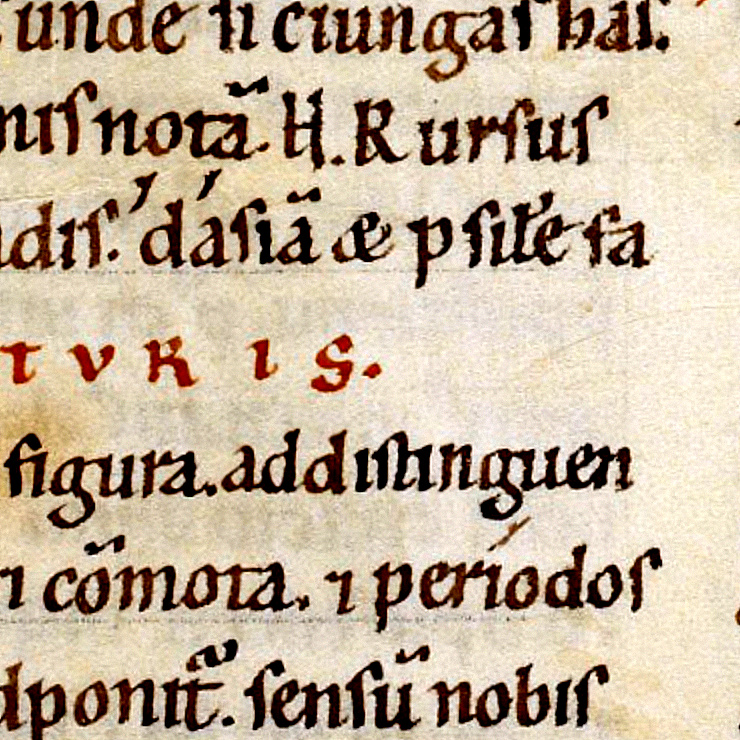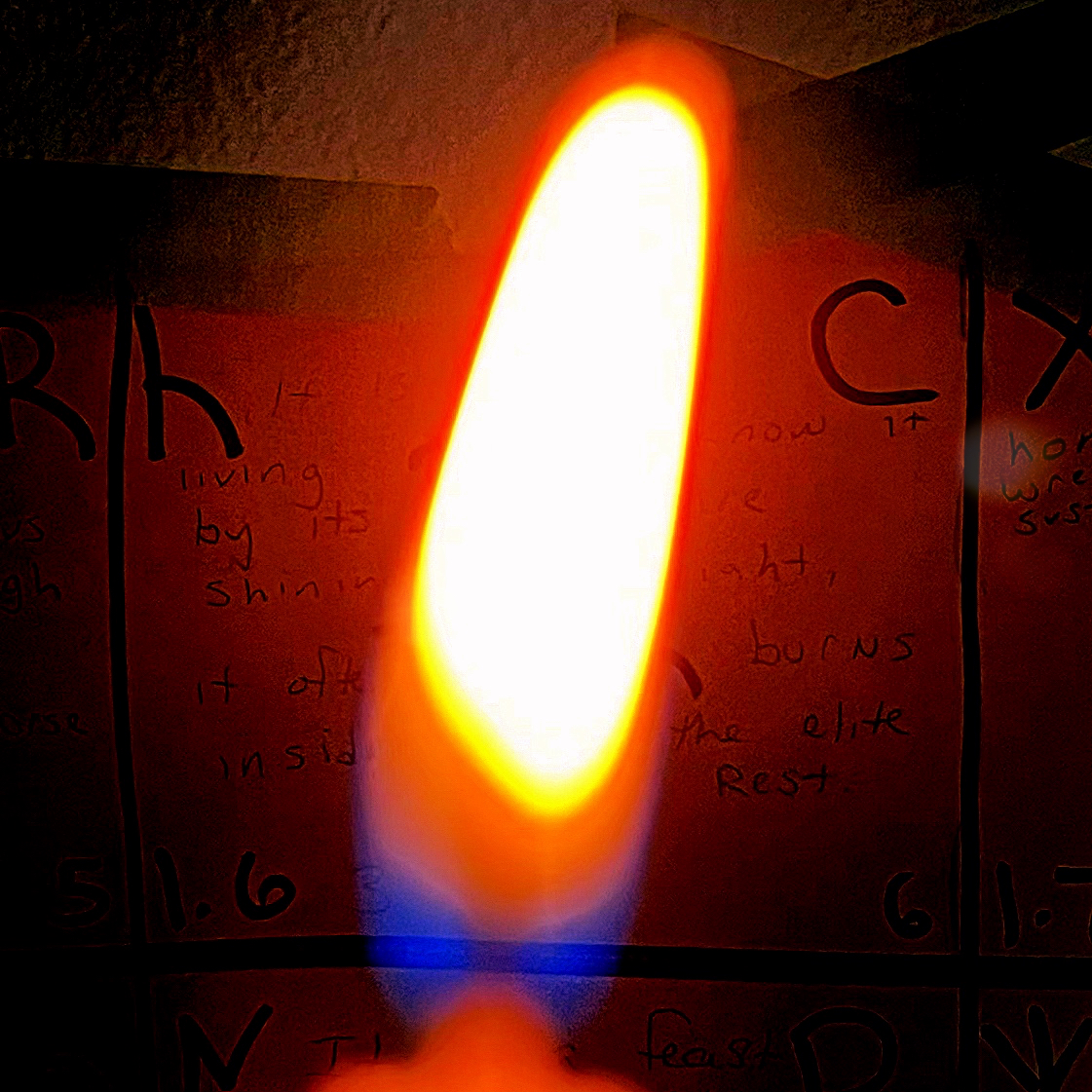
ᚳ byþ cwicera gehwam cuþ on fyre
blac and beorhtlic byrneþ oftust
ðær hi æþelingas inne restaþ ᛬᛫
It is to the living who know it by its fire
Shining and bright, it often burns
Inside where the elite rest.
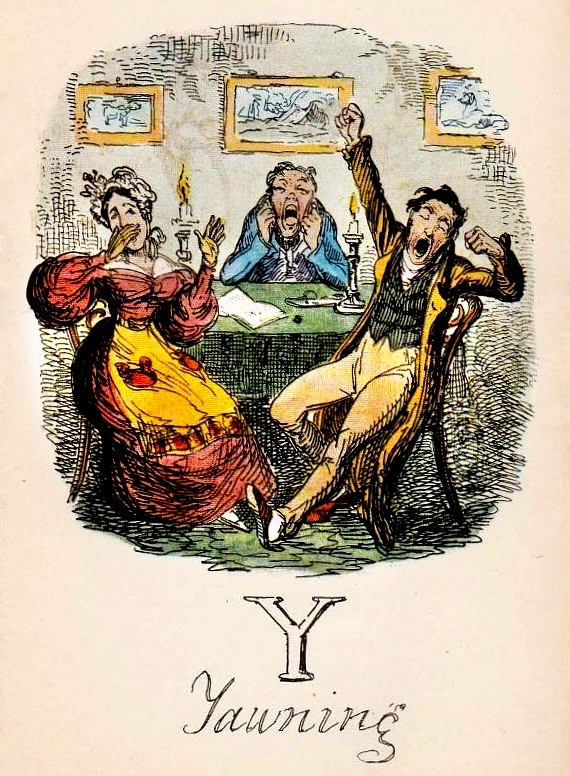
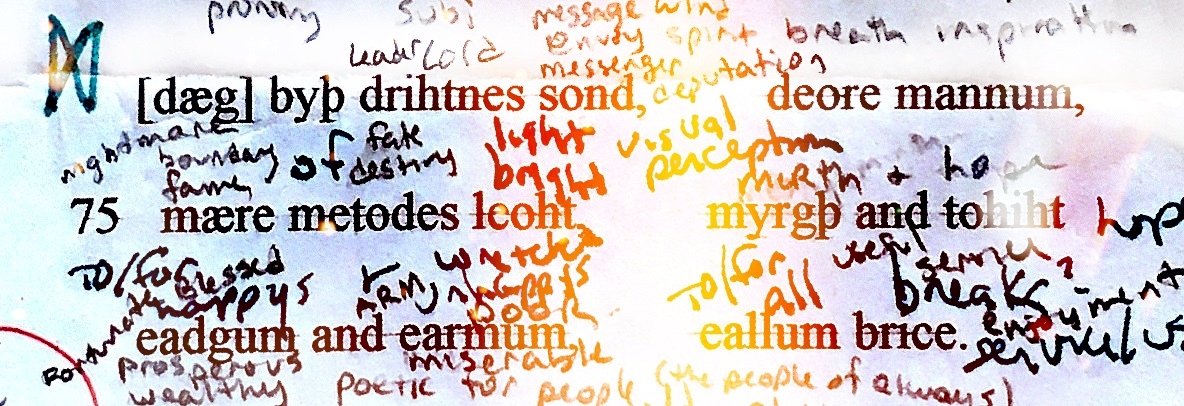 The word drihtnes appears twice in the rune poem, here and in stanza one, feoh, wealth. It means God, but in the sense of God as a lord, God the leader, the one in charge. God has other jobs: judge, executioner, advisor, muse, physician, daycare, security, human resources, accounting, project manager. All the jobs really, God is busy. Further down the CV God is also the metodes which sometimes gets translated as measurer. Metlic is something that is measurable, a metrap is a measuring rope for a field, or a sounding line to measure depth at sea. Metod is used in poetry mostly, where it means fate, destiny, and death, especially in earliest Old English, and the Rune Poem is early. God measures out our fate. God sizes us up and calculates our destiny.
The word drihtnes appears twice in the rune poem, here and in stanza one, feoh, wealth. It means God, but in the sense of God as a lord, God the leader, the one in charge. God has other jobs: judge, executioner, advisor, muse, physician, daycare, security, human resources, accounting, project manager. All the jobs really, God is busy. Further down the CV God is also the metodes which sometimes gets translated as measurer. Metlic is something that is measurable, a metrap is a measuring rope for a field, or a sounding line to measure depth at sea. Metod is used in poetry mostly, where it means fate, destiny, and death, especially in earliest Old English, and the Rune Poem is early. God measures out our fate. God sizes us up and calculates our destiny.
Drihtnes isn’t the only repetition going on here, we’ve seen tohiht (hope) and eadgum before. They were together in … More
 Cen is a rare word in Old English. It’s a torch here in the Rune Poem, and Cynewulf uses it to mean torch in his games with runes. Cynewulf: an Old English poet and fascinating person who made acrostics out of runes when signing his name to stuff, and about whom we know pretty much nothing. We know he was one of a limited few who ever signed anything. Perhaps he was a monk: it is thought most writers of Old English lived in monasteries, where the individual is not the main focus. They have a whole other focus. But you can slip your signature in there if you make something amusing out of it. Cynewulf was pretty cunning like that when it came to self promotion.
Cen is a rare word in Old English. It’s a torch here in the Rune Poem, and Cynewulf uses it to mean torch in his games with runes. Cynewulf: an Old English poet and fascinating person who made acrostics out of runes when signing his name to stuff, and about whom we know pretty much nothing. We know he was one of a limited few who ever signed anything. Perhaps he was a monk: it is thought most writers of Old English lived in monasteries, where the individual is not the main focus. They have a whole other focus. But you can slip your signature in there if you make something amusing out of it. Cynewulf was pretty cunning like that when it came to self promotion.
Perhaps we can look at Cynewulf’s name to learn a bit more about him. Sometimes the cen rune shape is written in manuscripts as shorthand for the … More
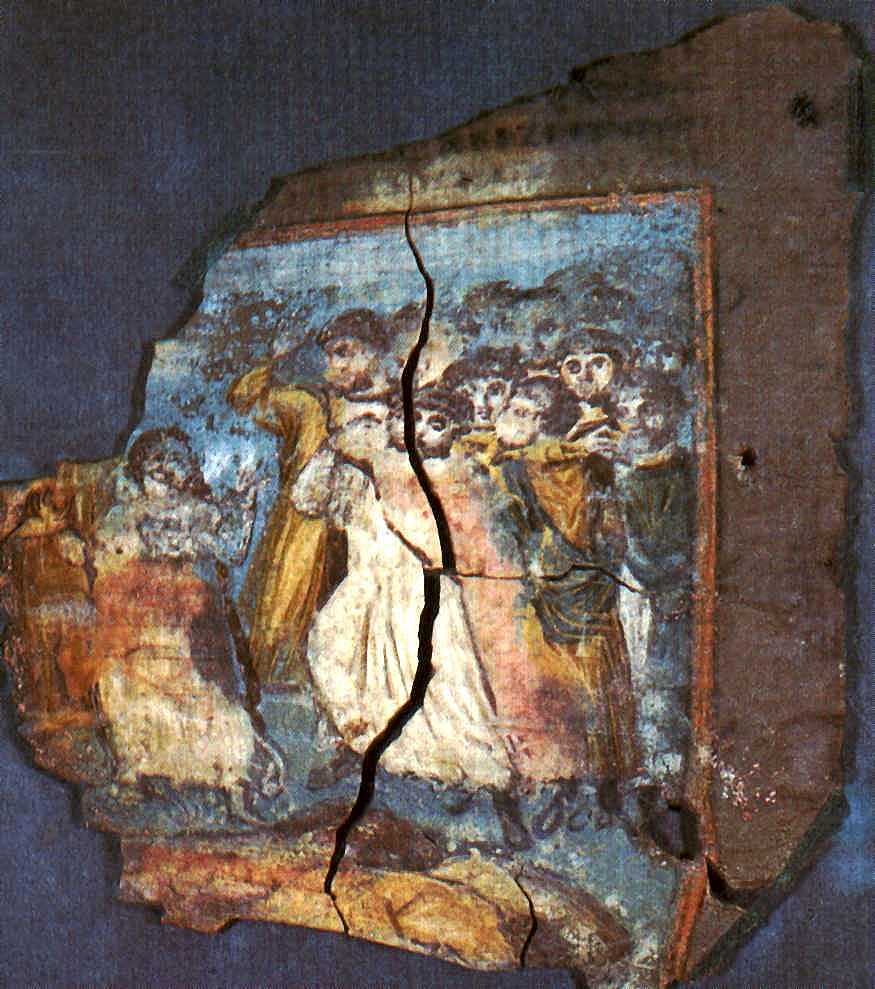 Collect every medieval manuscript you can get your hands on, the best ones, the really beautiful and important ones. Make a who’s who of the famed and the fabulous and gather them all in, from all over the place, get the bibles of every discipline and the bible too: science, literature, law, medicine, government. Religion. Assemble the works of our ancestors and make them your children. Be the mother of thousands. Be all their daddies.
Collect every medieval manuscript you can get your hands on, the best ones, the really beautiful and important ones. Make a who’s who of the famed and the fabulous and gather them all in, from all over the place, get the bibles of every discipline and the bible too: science, literature, law, medicine, government. Religion. Assemble the works of our ancestors and make them your children. Be the mother of thousands. Be all their daddies.
Bequeath your collection, vast and priceless, to the state. Forget that the state is not yet accustomed to protecting such treasures, this is symbolism. Make a point and give it all to the nation and not to the monarch, the national body will be your library’s parent and or legal guardian now.
Store the manuscripts in a room right above a fireplace. Directly above. Prefer a temperamental fireplace with a wooden mantle.
Store firewood along the mantle, standing … More
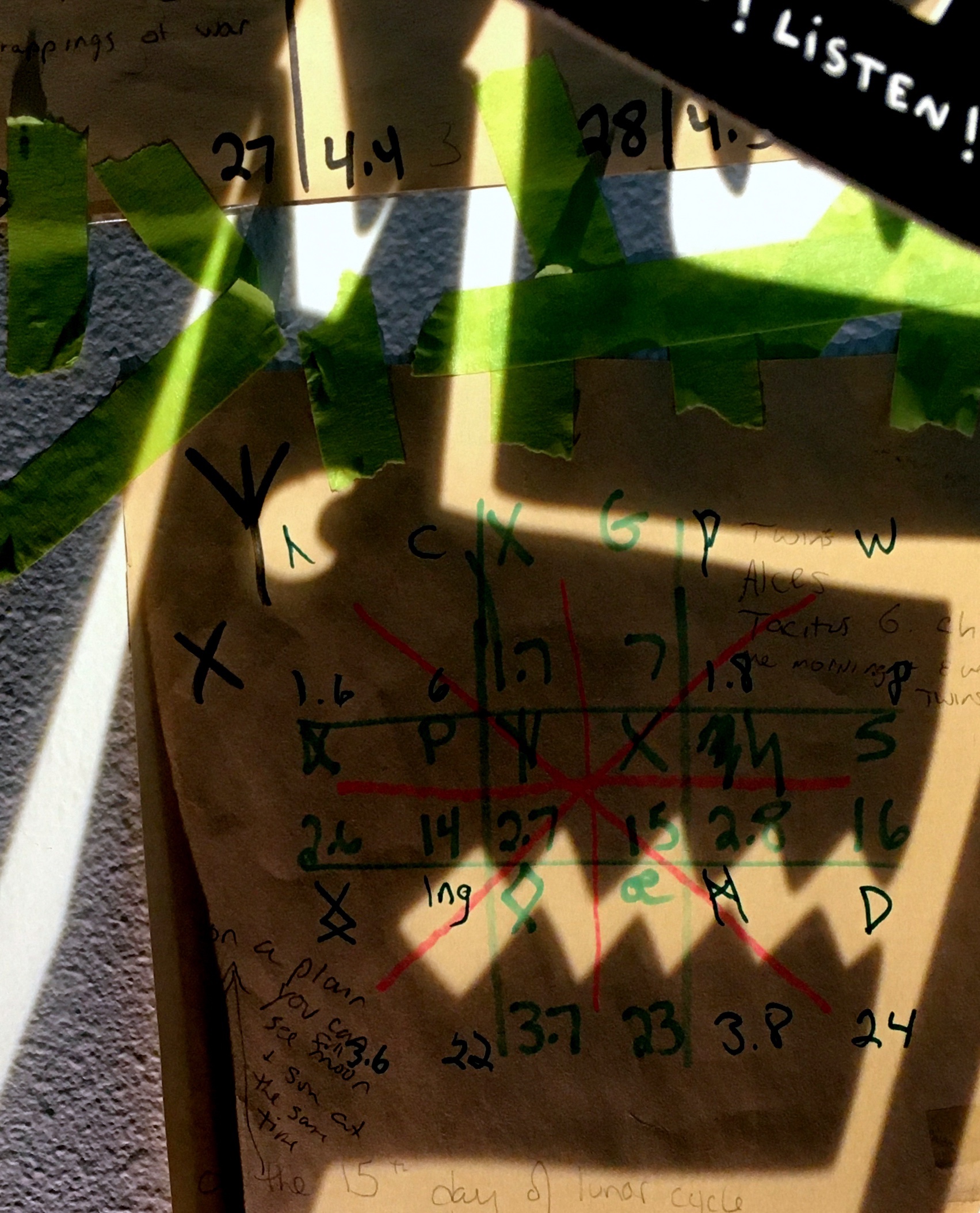 Are you awake? You up? Shh. Go back to sleep. Too much light in the room, I know. Go back to sleep at a darker time. Go back to sleep about a millennium and a half ago. That better? See? You can’t. It’s dark. It’s not the dark ages for nothing, except now dark’s your problem. The moon is your nightlight and when it’s not around you can’t see your hand in front of your face.
Are you awake? You up? Shh. Go back to sleep. Too much light in the room, I know. Go back to sleep at a darker time. Go back to sleep about a millennium and a half ago. That better? See? You can’t. It’s dark. It’s not the dark ages for nothing, except now dark’s your problem. The moon is your nightlight and when it’s not around you can’t see your hand in front of your face.
Other stuff out there can see just fine. They can see you specifically. The wolves are right outside. They’re here. They live here too. So do rats, and they like the dark as well. They really live here too. Right here. Here here. And they’re not the only ones. If you think you are alone right now you’re dreaming. You are sleeping with an enemy that is legion, hungry at night.
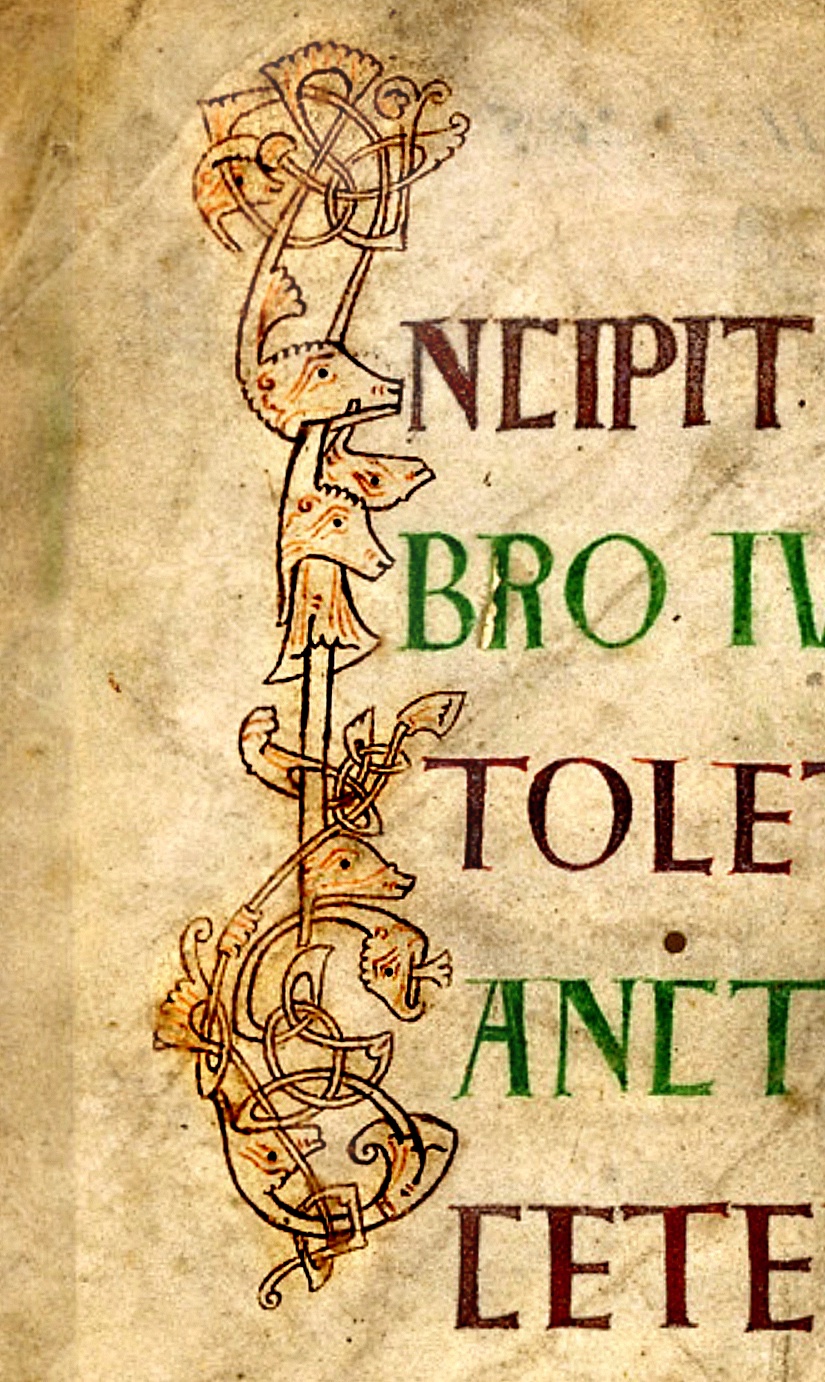
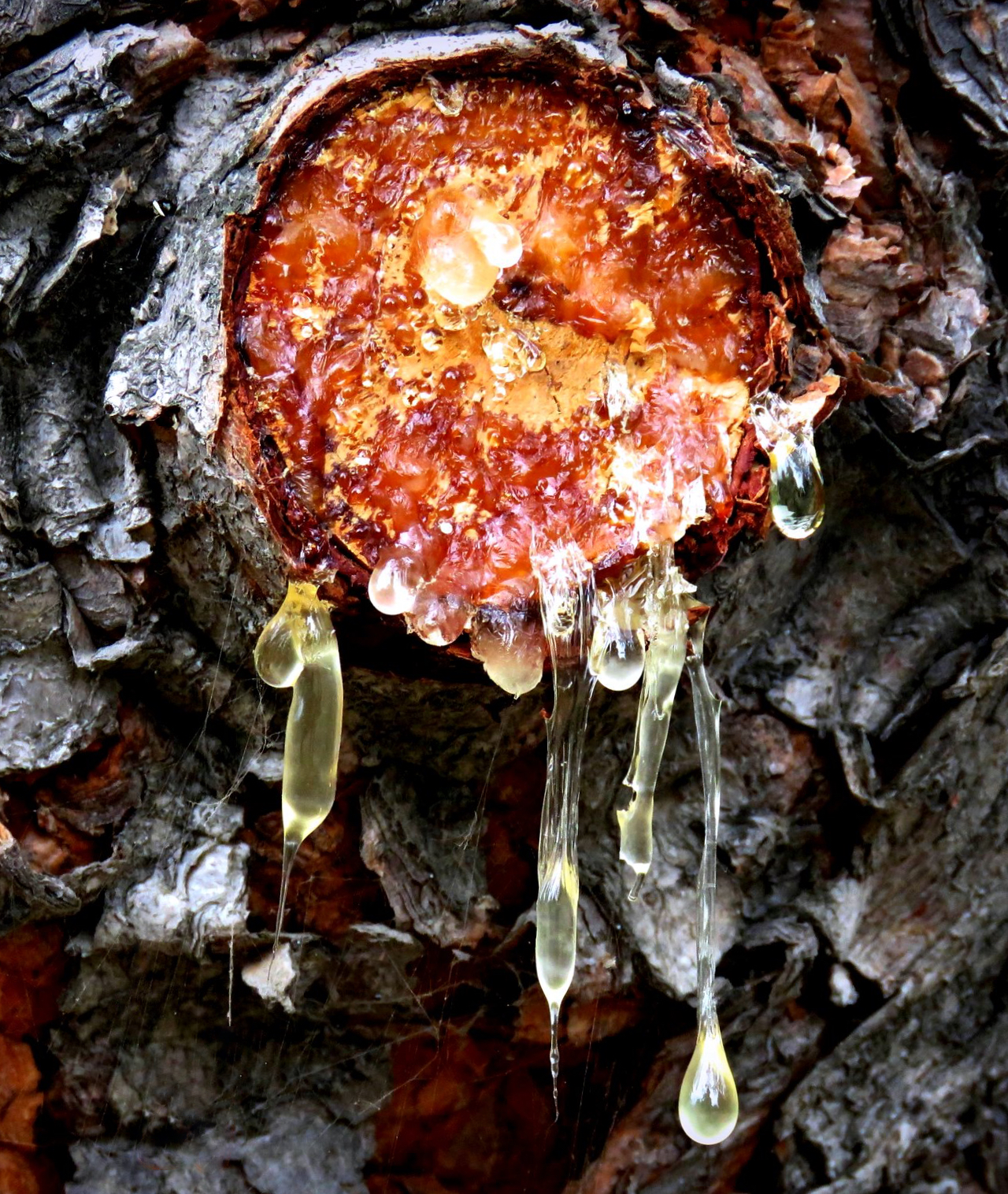 Find a pine tree, a nice sticky one full of resin, that stuff will burn in rain. Look for dead branches, go for one near the base of the tree and cut it off as close to the trunk as possible. You’ll know when you find a good one.
Find a pine tree, a nice sticky one full of resin, that stuff will burn in rain. Look for dead branches, go for one near the base of the tree and cut it off as close to the trunk as possible. You’ll know when you find a good one.
Split the end of the branch with an axe four ways, north south east west, quarter it. Cut down several inches. Break nothing off.
Carve out some kindling from the inner edges of your cuts. Shave it out, make an X of airflow. Fill the X with the shaved bits. Now fill the X with fire. Try not to burn the place down.
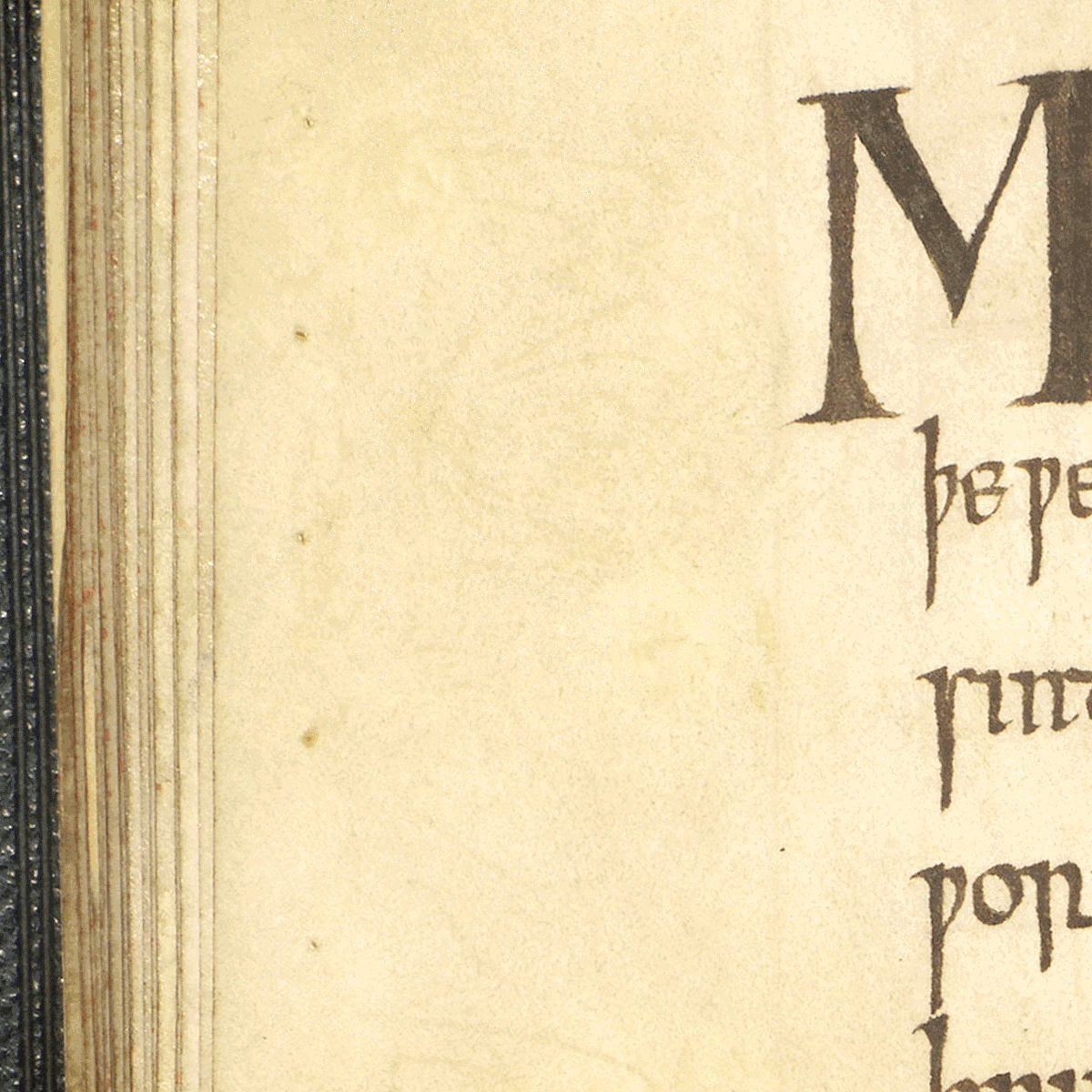
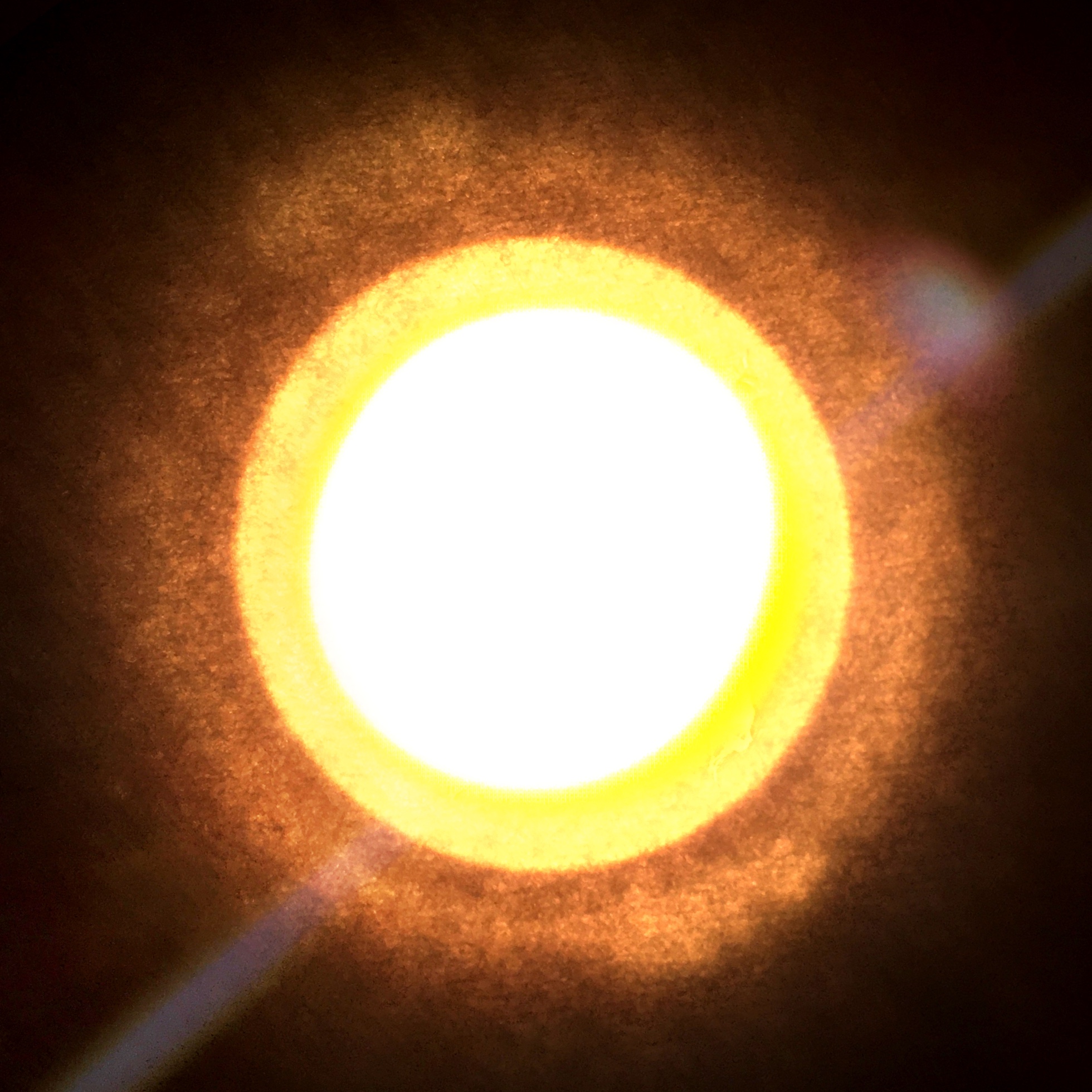 Light is a transverse wave and an electromagnetic wave. Light is a vibrating electric field creating a vibrating magnetic field, creating a vibrating electric field. Light is vibrating in S shapes, unfolding itself toward you, self creating.
Light is a transverse wave and an electromagnetic wave. Light is a vibrating electric field creating a vibrating magnetic field, creating a vibrating electric field. Light is vibrating in S shapes, unfolding itself toward you, self creating.
You, what are you, you are made out of waves too, sometimes, depending on who’s looking. I see you. All lit up from inside, I can see it in your eyes. Vital spark.
Illuminate for me before you go into the light, O luminary, are you the messenger or the message?

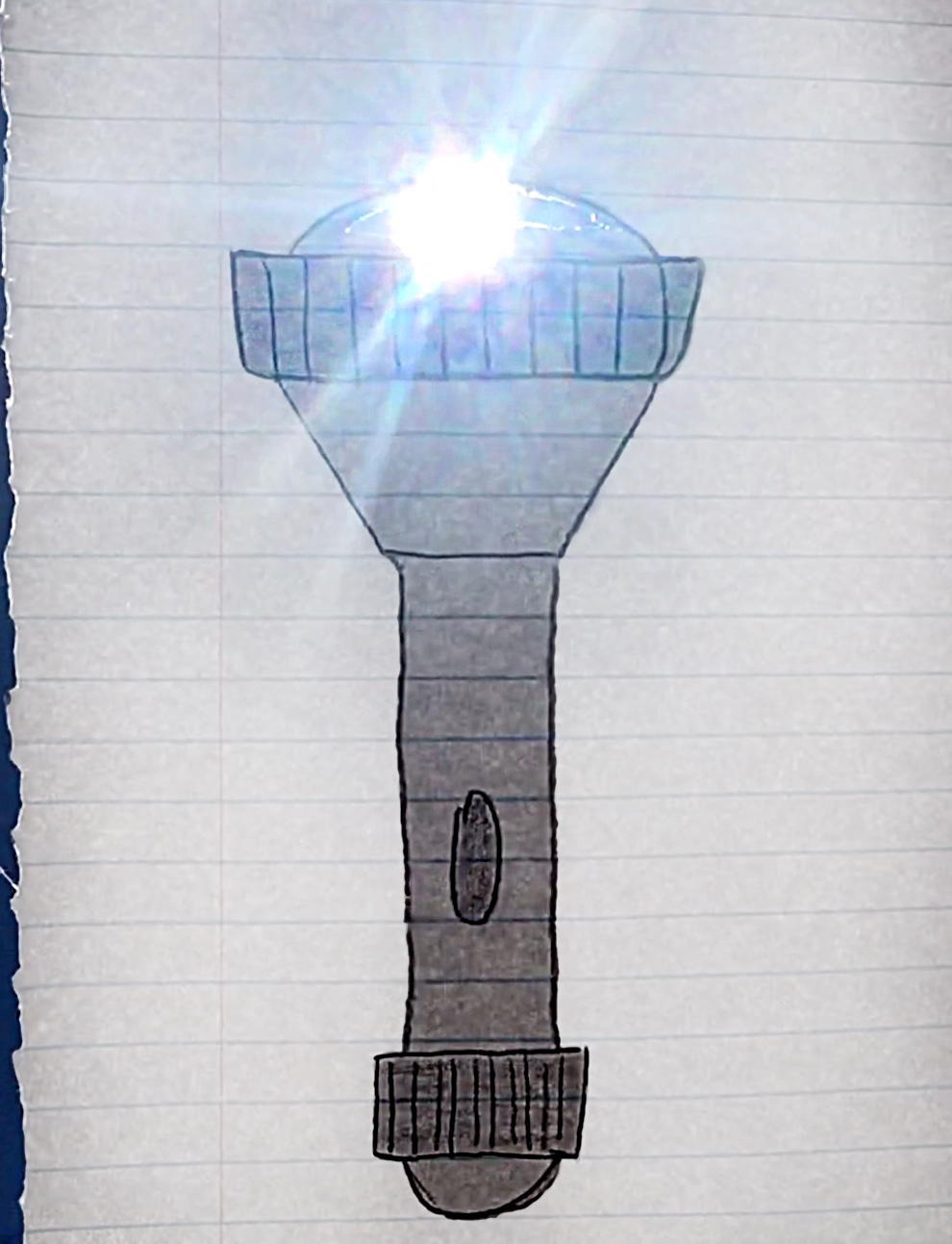 The Day and Torch stanzas are as similar as night and day and everybody knows it. The living (cwicera) know (cuþ) it in the torch stanza, you’d have to be dead not to, and it’s straight up mære (famous) in the day stanza. Who doesn’t know yin and yang? Light and dark, complimentary opposites, a two in one intruding into each others space. Like all opposing forces they need each other to survive, and we need them. We particularly favor light, it makes us all happy in the day and secure at night. Who gets to feel secure at night? Well, not everybody.
The Day and Torch stanzas are as similar as night and day and everybody knows it. The living (cwicera) know (cuþ) it in the torch stanza, you’d have to be dead not to, and it’s straight up mære (famous) in the day stanza. Who doesn’t know yin and yang? Light and dark, complimentary opposites, a two in one intruding into each others space. Like all opposing forces they need each other to survive, and we need them. We particularly favor light, it makes us all happy in the day and secure at night. Who gets to feel secure at night? Well, not everybody.
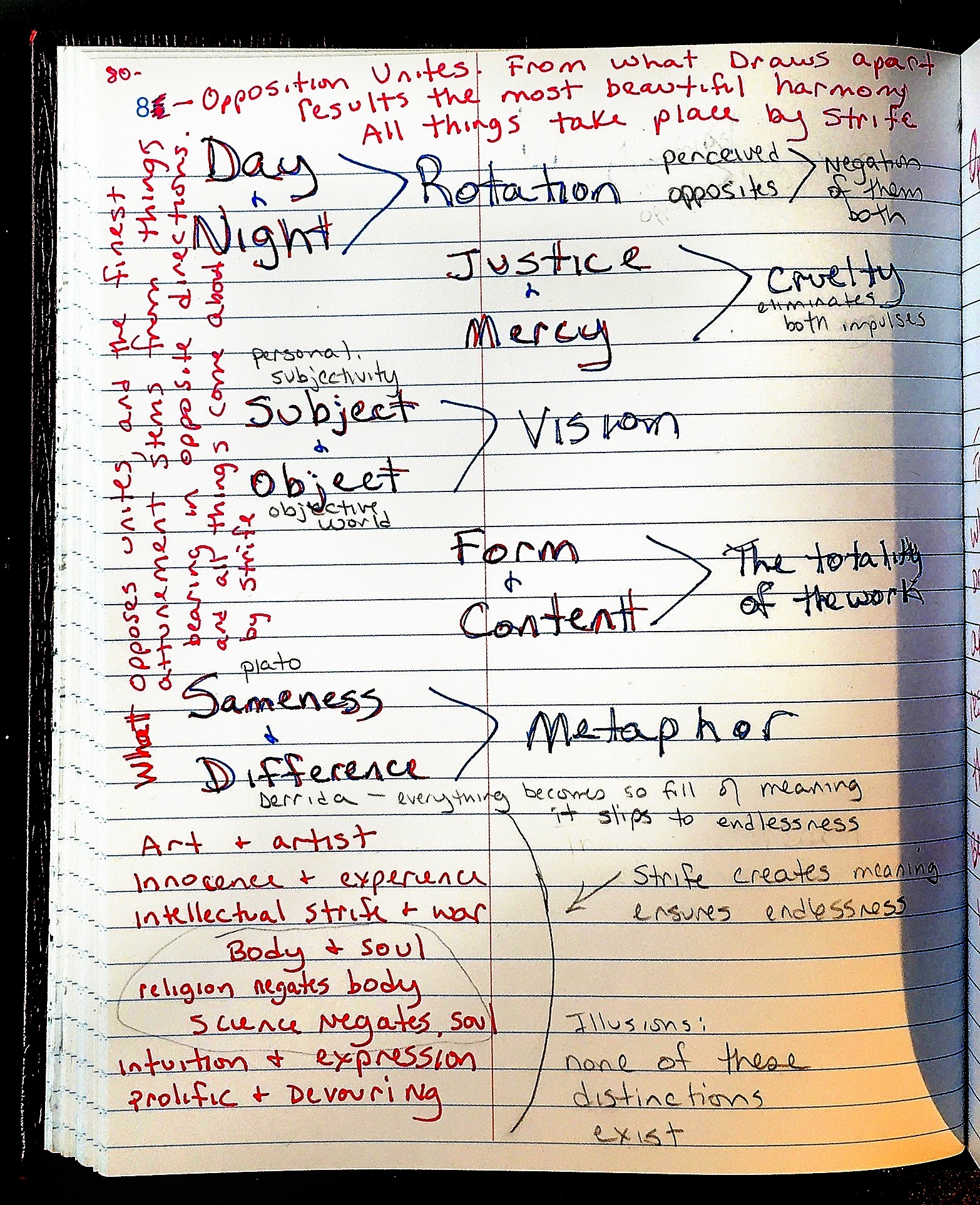 Shh. Watch them. See them? X and Y are fighting again. Thank God for it because strife holds the world together. We need this to happen, though these two do drive Z to murder. There they go. Battling it out. X and Y. Mirroring entities. Mutually essential through opposition. Apparent opposition, this is an illusion we’re seeing, binary distinctions do not actually exist. These opposing forces are just forces, mutually essential. Annihilate one by removing the other and poof they’re both gone. So don’t do it. It’s dangerous. Let them be what they will and do what they do, and hope for balance.
Shh. Watch them. See them? X and Y are fighting again. Thank God for it because strife holds the world together. We need this to happen, though these two do drive Z to murder. There they go. Battling it out. X and Y. Mirroring entities. Mutually essential through opposition. Apparent opposition, this is an illusion we’re seeing, binary distinctions do not actually exist. These opposing forces are just forces, mutually essential. Annihilate one by removing the other and poof they’re both gone. So don’t do it. It’s dangerous. Let them be what they will and do what they do, and hope for balance.
Here’s an example. When X and Y are body and soul, another pair of contraries emerge on a different level of scale: science and religion, here to battle each other and bod and soul as well. Religion negates body, Science negates soul. X and Y have levels and the levels … More
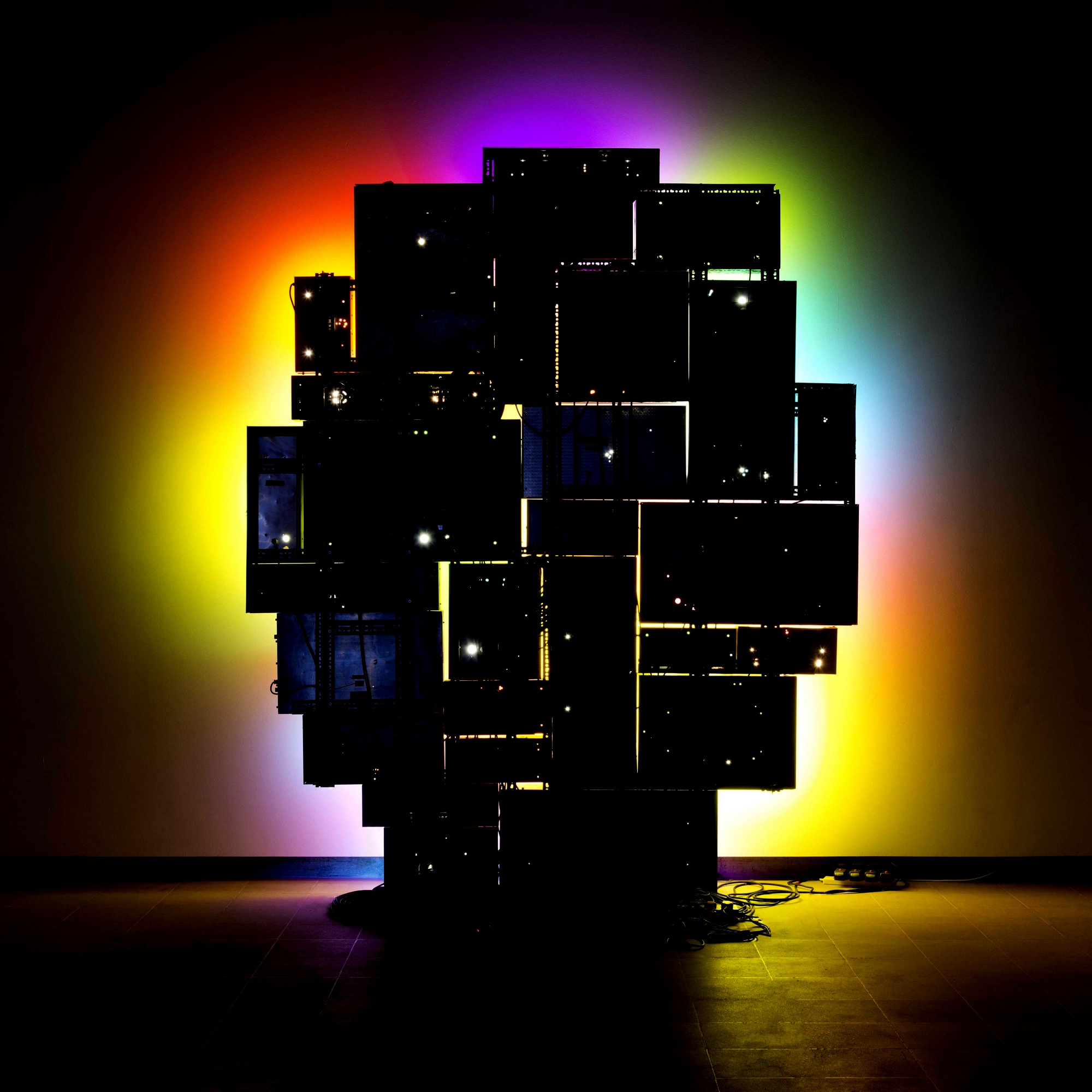 Look at that screen in your face, envoy of light. Messenger and message, firing sense and nonsense changing everything, has already. The bright light of the world and all its darkness too. A neatly packaged consumable, consuming. You want it, can’t do without. A world encyclopedia of light, feeding.
Look at that screen in your face, envoy of light. Messenger and message, firing sense and nonsense changing everything, has already. The bright light of the world and all its darkness too. A neatly packaged consumable, consuming. You want it, can’t do without. A world encyclopedia of light, feeding.
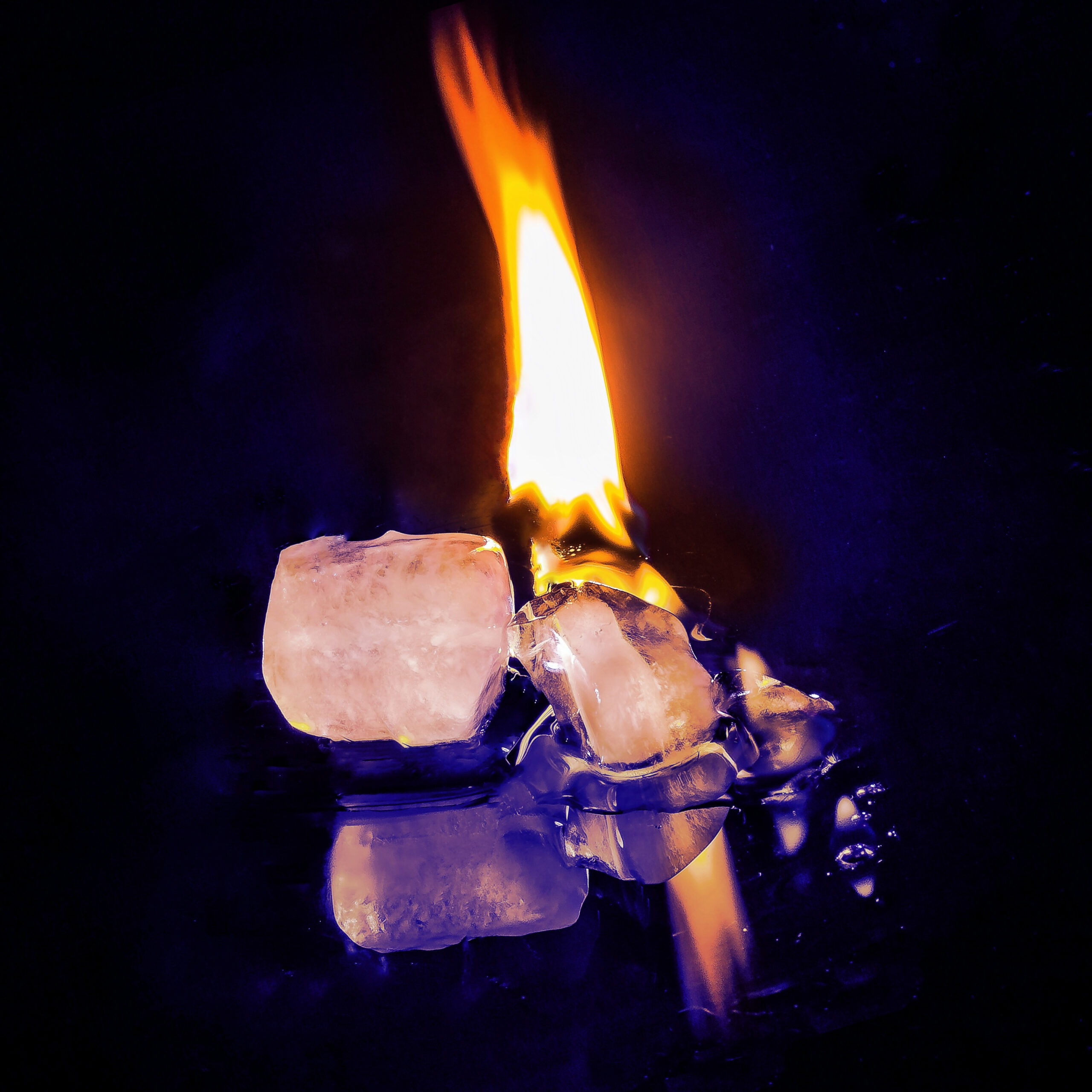 You want to burn it all down, even the unburnable. Good. To burn it all down you’ll need a focus. Find out what it is that’s really pissing you off most, bring that bitterest pill right to your face and choke it down. Really feel the effect, lean into it. Let it spread through your chilly veins. Let bitterness be your new flavor, but don’t let it linger. You can’t linger about being bitter or sour or salty about something and still think you can accomplish a proper burning down, you have to spice it up with some heat, pica rico, get a good burn going, make it hurt.
You want to burn it all down, even the unburnable. Good. To burn it all down you’ll need a focus. Find out what it is that’s really pissing you off most, bring that bitterest pill right to your face and choke it down. Really feel the effect, lean into it. Let it spread through your chilly veins. Let bitterness be your new flavor, but don’t let it linger. You can’t linger about being bitter or sour or salty about something and still think you can accomplish a proper burning down, you have to spice it up with some heat, pica rico, get a good burn going, make it hurt.
Now, smolder right on past indignant, consume outraged and offended into ashes, and get to steaming. Irritated and irate are nothing now, you want livid. You want fury. You want fuming. Are you are fuming? Properly inflamed? Ugly angry? Ugly angry. That’s the look … More
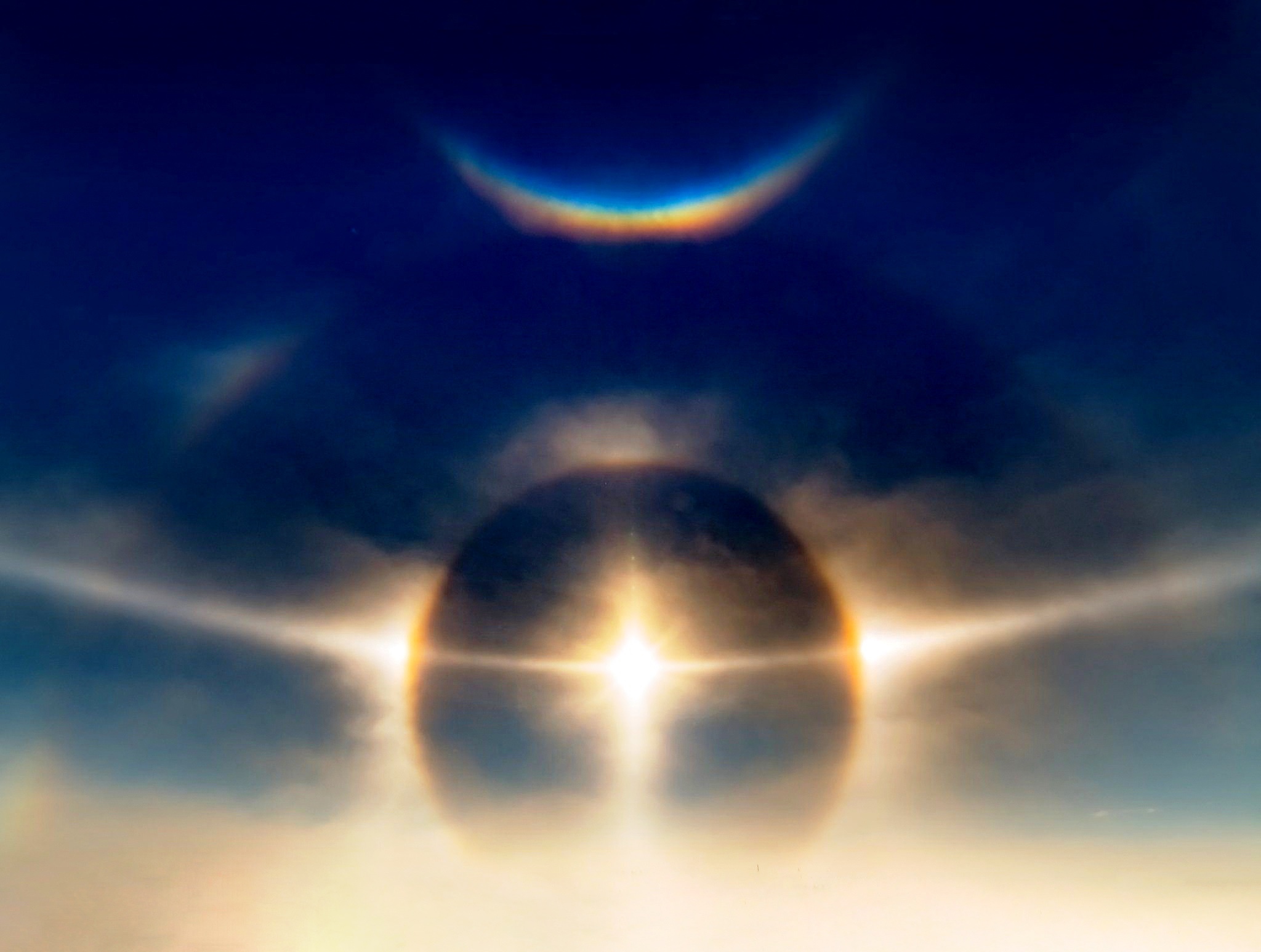 You are getting a message. Pay attention to the messenger because in the clear light of day your messenger is the message. There’s nothing subtle about it either, a massive spotlight will shine right onto your fate, and you could be anybody. You could be flush with everything right now or be sitting in a pile of nothing, likely both, but the sun will sparkle upon you and you will love it.
You are getting a message. Pay attention to the messenger because in the clear light of day your messenger is the message. There’s nothing subtle about it either, a massive spotlight will shine right onto your fate, and you could be anybody. You could be flush with everything right now or be sitting in a pile of nothing, likely both, but the sun will sparkle upon you and you will love it.
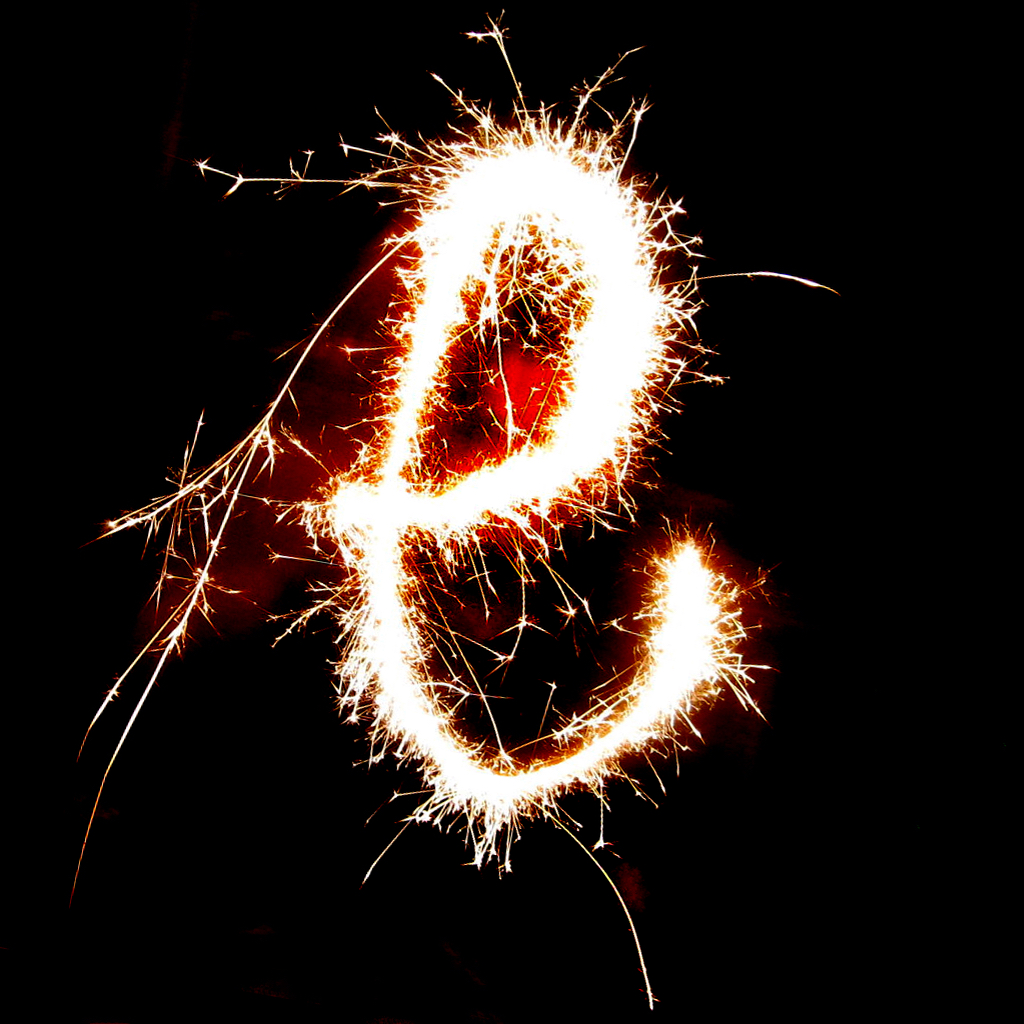
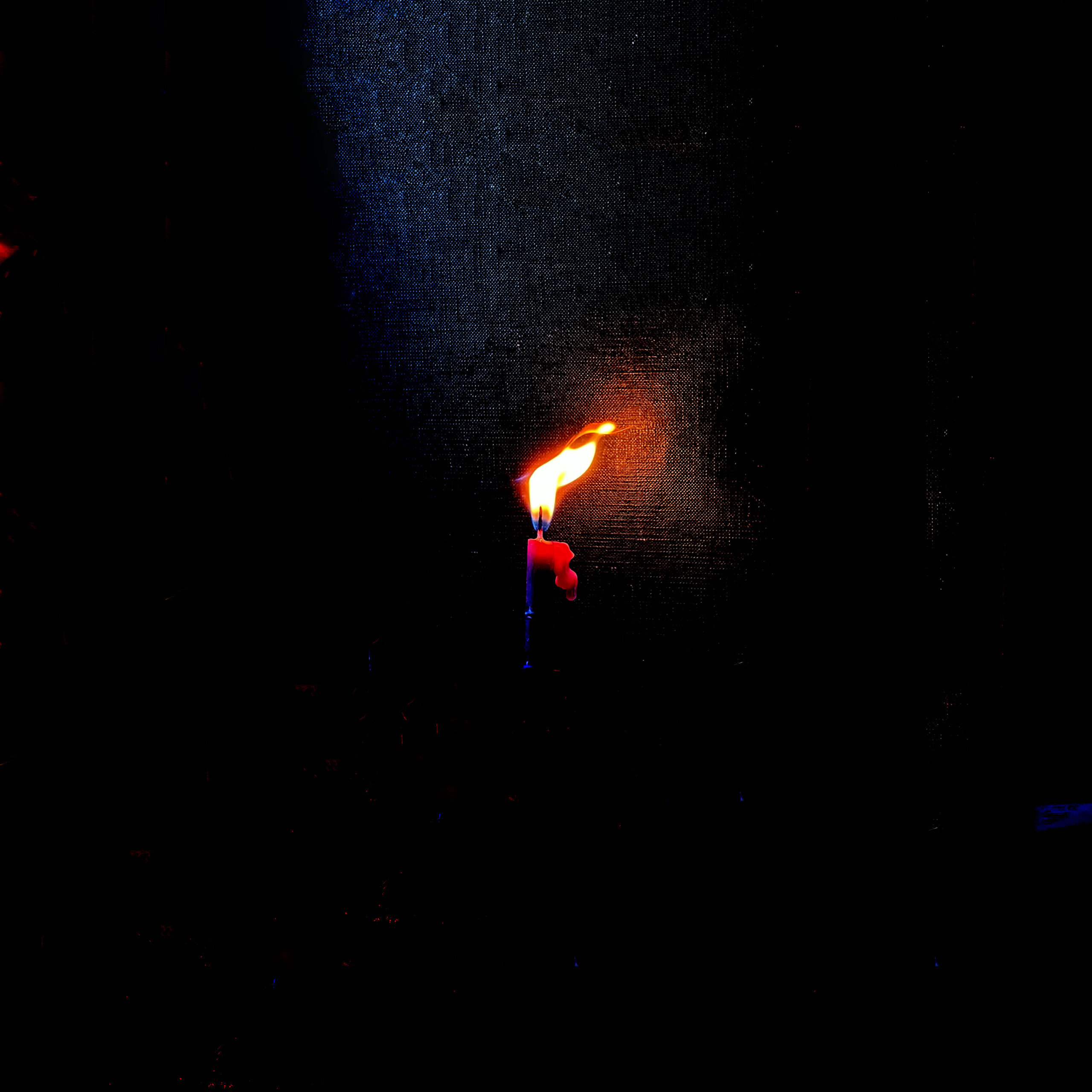 Things can get pretty dark sometimes. I get it. The gloom comes in and anything shining or warm, the bright things, go dim. All the luster to anything recedes. Be at ease, there’s a fire inside and the light will come back. It always does. Turn around and look. Don’t you see? All these shadows are made by light at rest upon your body.
Things can get pretty dark sometimes. I get it. The gloom comes in and anything shining or warm, the bright things, go dim. All the luster to anything recedes. Be at ease, there’s a fire inside and the light will come back. It always does. Turn around and look. Don’t you see? All these shadows are made by light at rest upon your body.
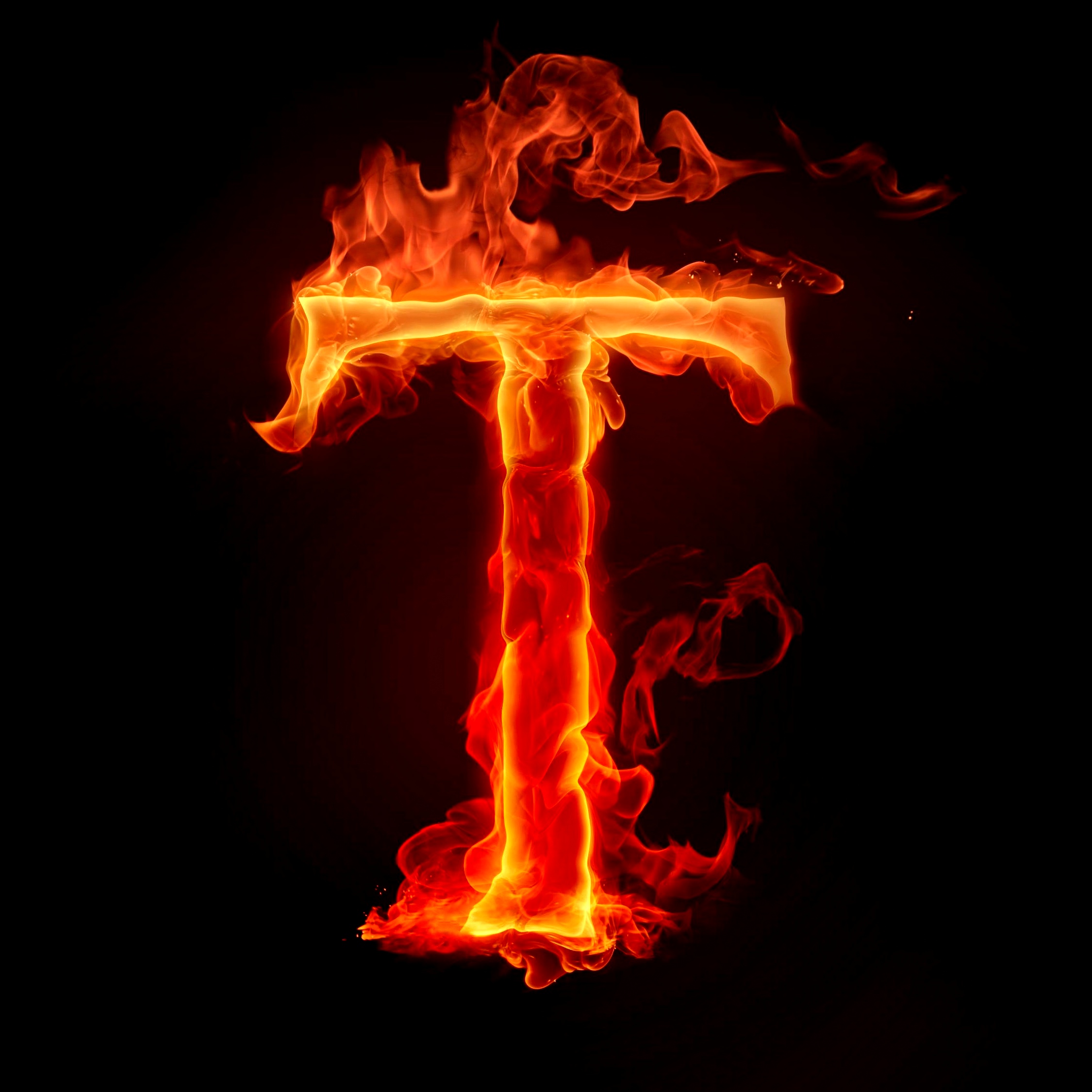
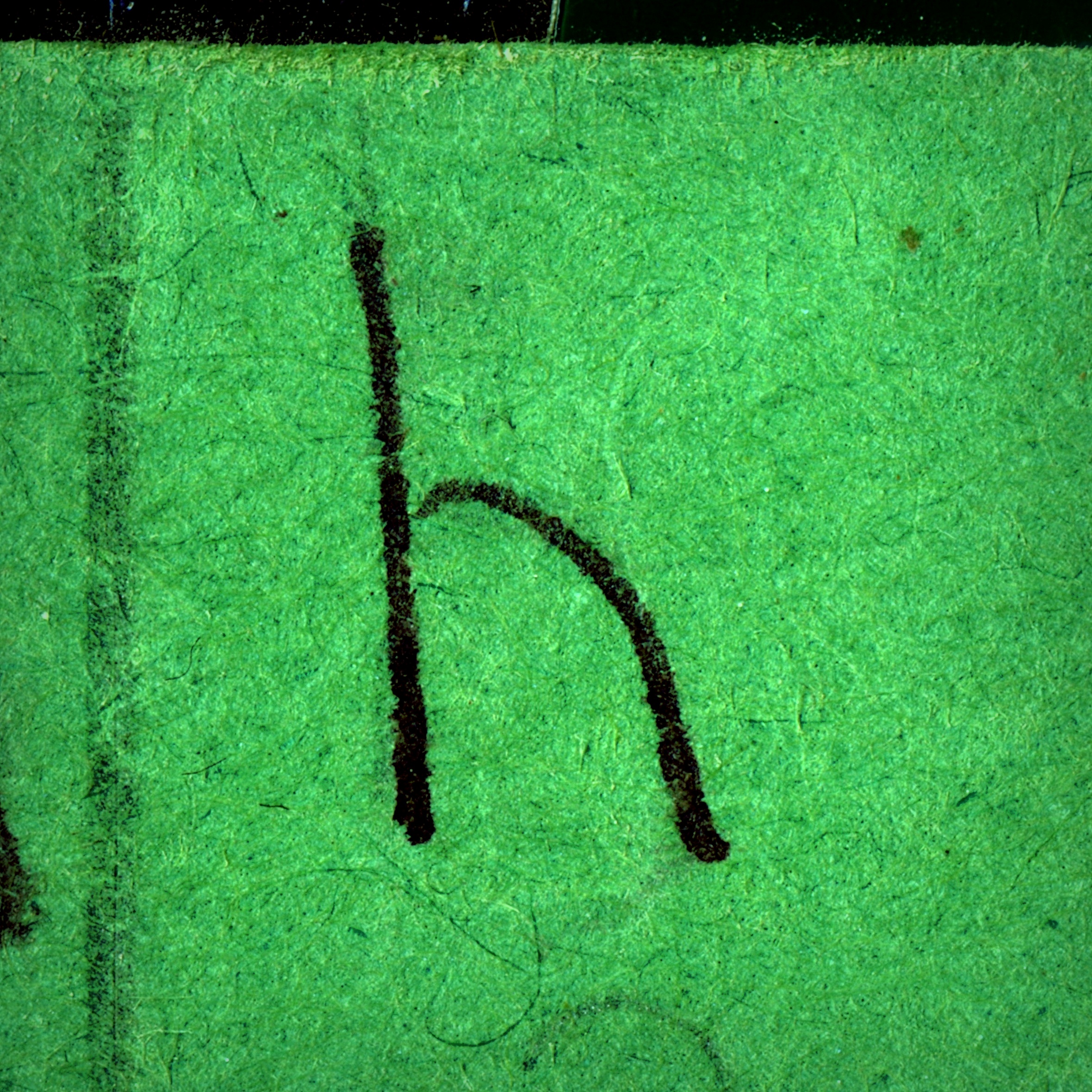 Originally the letter C made a hard sound in Old English, like a K, but because everything is temporary, over time C developed a second sound depending upon its immediate neighbors: CH (represented as tʃ by the International Phonetic Alphabet). One’s immediate neighbors can really change a vibe. In Old English C most often sounds like a K, velar region of the mouth. It moves to the front of the mouth (dental and front palate region) to make the CH sound mostly when it lives next door to a long I or long E, or a diphthong starting with these letters.
Originally the letter C made a hard sound in Old English, like a K, but because everything is temporary, over time C developed a second sound depending upon its immediate neighbors: CH (represented as tʃ by the International Phonetic Alphabet). One’s immediate neighbors can really change a vibe. In Old English C most often sounds like a K, velar region of the mouth. It moves to the front of the mouth (dental and front palate region) to make the CH sound mostly when it lives next door to a long I or long E, or a diphthong starting with these letters.
Cen is usually pronounced as cheen, or /t͡ʃeːn/ in IPA, but may also be pronounced as keen, K sound. We don’t really know what Old English sounds like. The E in Cen is a long E, so this would suggest a CH sound, except if this were a Y, and E was … More
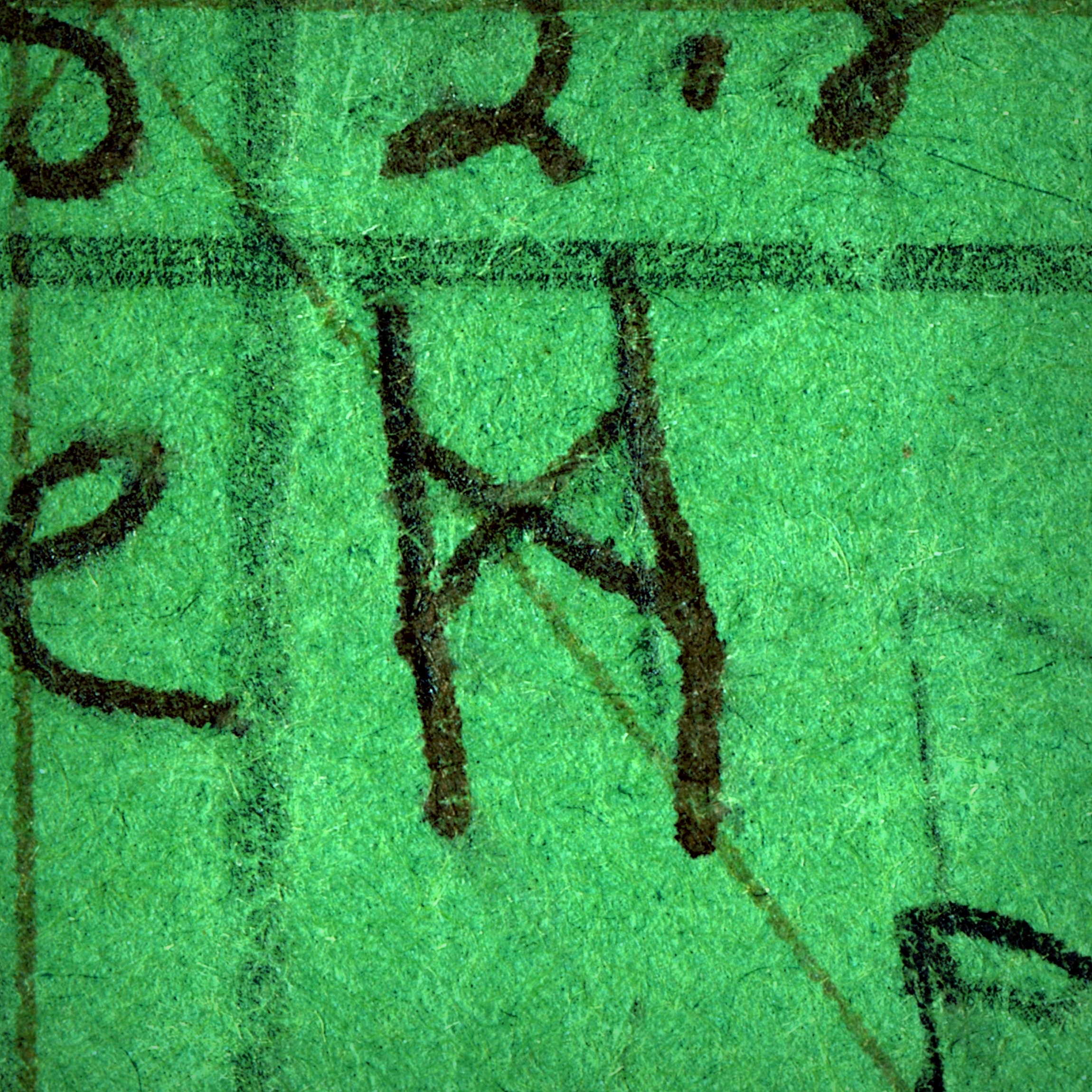 D. Voiced alveolar dental stop. You use your voice and soft palate to make the sound, make your breath stop against your teeth. Leave your larynx out of it and you make a T. D was sometimes spelled with a T in later Old English, and it would occasionally appear as the letter Eth which looks like this: Ð and this: ð. Eth is kind of a cross between a Þ (thorn, TH) and a D. A th sound with a little D flavor. Eventually the Ð and Þ became interchangeable leaving the D to stand alone, exiled in wretchedness.
D. Voiced alveolar dental stop. You use your voice and soft palate to make the sound, make your breath stop against your teeth. Leave your larynx out of it and you make a T. D was sometimes spelled with a T in later Old English, and it would occasionally appear as the letter Eth which looks like this: Ð and this: ð. Eth is kind of a cross between a Þ (thorn, TH) and a D. A th sound with a little D flavor. Eventually the Ð and Þ became interchangeable leaving the D to stand alone, exiled in wretchedness.
Make a thorn and point it at a reverse thorn. A thorn in a mirror. Let them keep in touch, they are very close.
